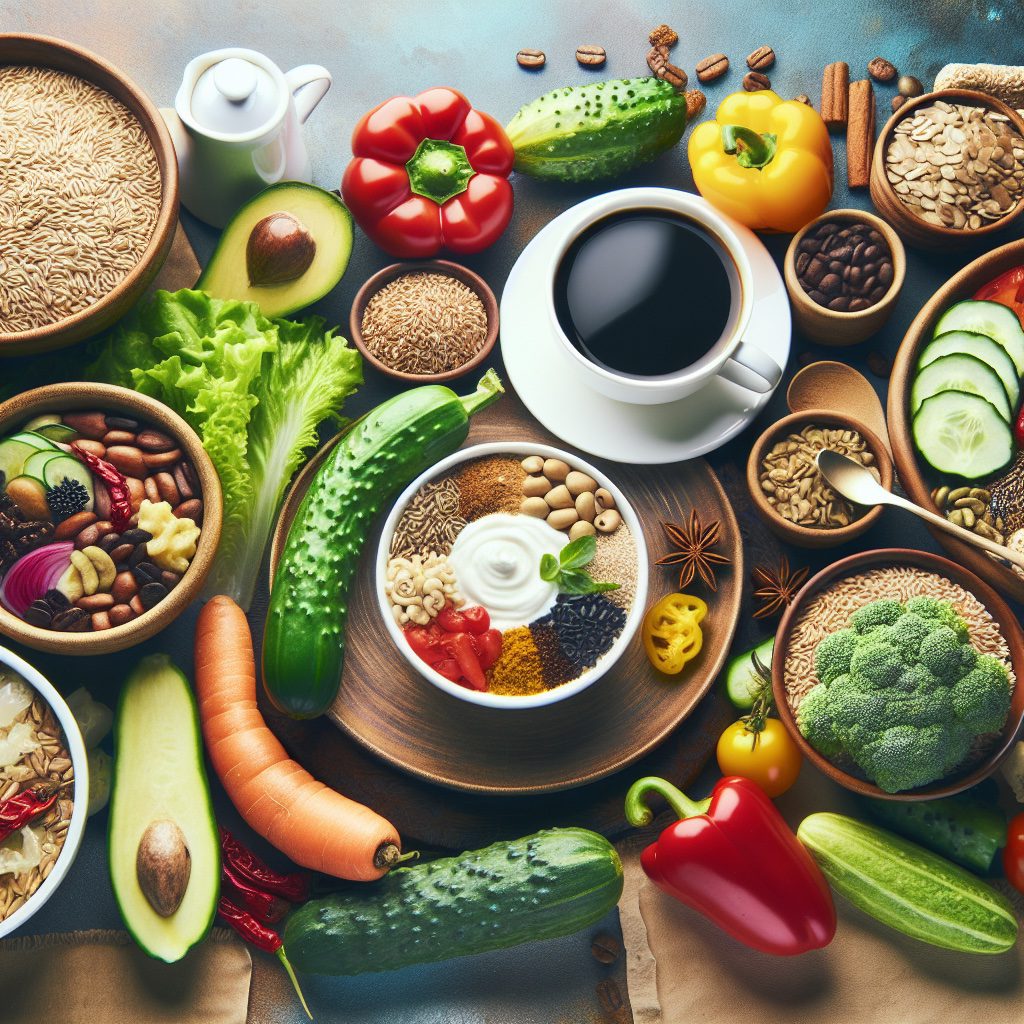# Eastern Energy Secrets: 7 Forgotten Foods That Revitalize Your Body When You’re Drained
Have you ever felt completely wiped out despite getting enough sleep? That dragging, heavy feeling when your body seems to be running on empty? In Eastern wisdom traditions, this isn’t just about being tired—it’s about your energy being out of balance.
For centuries, Eastern healing traditions have viewed foods as more than just calories and nutrients. Each ingredient carries unique energetic properties that can either revitalize your body or drain it further. This ancient knowledge offers a refreshing perspective for those of us seeking natural ways to restore our vitality when modern life leaves us depleted.
## The Eastern Approach to Energy Through Food
In Eastern medicine, particularly Chinese traditions, food isn’t just fuel—it’s medicine. Every bite you take influences your qi (pronounced “chee”), the vital life force that flows through your body. When your energy feels low, it’s not just about eating more—it’s about eating smarter by choosing foods that balance and enhance your body’s natural vitality.
What makes this approach so appealing is its personalized nature. Unlike one-size-fits-all diet plans, Eastern wisdom encourages you to listen to your body’s voice and respond with foods that address your unique energy imbalances.
## Understanding Chinese Medicine’s Dietary Wisdom
Chinese medicine sees food through a completely different lens than Western nutrition. Rather than counting calories or macros, this 5,000-year-old tradition categorizes foods according to their energetic effects on your body.
Foods in Chinese medicine are classified by their:
- Thermal nature (warming, cooling, or neutral)
- Flavor (sweet, sour, bitter, salty, or pungent)
- Specific actions on organ systems
For example, when you’re feeling drained in winter, warming foods like ginger can revitalize your system. Feeling overheated and irritable in summer? Cooling foods like cucumber might be exactly what your body needs.
This approach is deeply rooted in the philosophy of achieving harmony between humans and nature. By eating according to the seasons and your body’s specific needs, you naturally align yourself with the rhythms of the natural world—something that resonates deeply with health lifestyle advocates seeking more balanced ways of living.
As one TCM practitioner explains, “According to Chinese Medical Food Therapy, we should be eating food that is fresh, recently harvested and grown locally. It should be seasonal and still be full of Qi when we eat it.” This wisdom reminds us that the most energizing foods are those still vibrant with their own life force.
## 7 Forgotten Energy-Boosting Foods from Eastern Traditions
When fatigue hits, instead of reaching for coffee or energy drinks, consider these seven forgotten powerhouses that Eastern traditions have relied on for centuries. These body healing foods offer sustained energy without the crash that comes from quick stimulants.
### 1. Goji Berries (Wolfberries)
These tiny red berries have been used in Chinese medicine for over 2,000 years. Rich in antioxidants and essential amino acids, goji berries are considered one of the most potent foods for energy when you’re feeling depleted.
Unlike the quick jolt from caffeine, goji berries provide sustained energy by supporting adrenal function and improving sleep quality. Add them to teas, oatmeal, or simply enjoy them as a snack when that afternoon slump hits.
### 2. Astragalus Root
This warming herb is renowned for its deep energy-building properties. In Chinese medicine, astragalus is considered a premier qi tonic that strengthens the body’s foundational energy.
“Astragalus works differently than stimulants,” explains an Eastern medicine practitioner. “Rather than forcing your body to produce more energy, it helps your cells generate and preserve energy more efficiently.” This makes it perfect for those dealing with chronic fatigue or recovery from illness.
Try astragalus in soups or stews during colder months, or look for astragalus tea blends like those offered by wellness-focused companies that understand the connection between herbs and vitality.
### 3. Black Sesame Seeds
These unassuming little seeds pack a powerful energetic punch. In Eastern medicine, black sesame seeds are treasured for nourishing yin energy (your body’s cooling, restoring forces) and supporting healthy kidney function—the organ system associated with your body’s most fundamental energy reserves.
Rich in iron, calcium, and beneficial oils, black sesame seeds are particularly recommended for premature graying hair and dizziness—both considered signs of depleted energy in Eastern traditions. Sprinkle them on meals or make traditional black sesame soup for a deeply nourishing treat.
### 4. Lotus Root
This aquatic vegetable with its distinctive hole-filled appearance isn’t just visually interesting—it’s also a forgotten healing food that boosts energy while clearing heat from the body.
Lotus root strengthens the spleen and stomach energies in Chinese medicine, which directly translates to improved digestion and energy absorption from food. Its cooling properties make it perfect for when you feel drained from inflammatory conditions.
Crisp and slightly sweet, lotus root can be stir-fried, added to soups, or even enjoyed as lotus root chips for a nourishing snack.
### 5. Codonopsis Root (Dang Shen)
Often called “poor man’s ginseng,” codonopsis offers many of the energy-boosting benefits of its more famous cousin at a fraction of the cost. This gentle yet effective root builds qi without being too stimulating, making it suitable for daily use.
Codonopsis is particularly valued for strengthening digestive energy—a key factor in fatigue since your body needs to efficiently transform food into energy. It has a pleasant, slightly sweet taste that works well in soups and stews.
### 6. Jujube Dates (Red Dates)
These small, reddish-brown fruits are nutritional powerhouses that nourish blood and calm the spirit according to Eastern medicine. When you’re feeling both physically and mentally exhausted, jujube dates address both aspects of your fatigue.
Rich in cyclic adenosine monophosphate (cAMP), jujube dates help improve cellular energy production while their natural sweetness provides quick glucose for immediate energy needs. They make a delightful snack on their own or can be added to teas and desserts.
### 7. Millet
Before rice dominated Asian cuisines, millet was a staple grain across the East. This forgotten ancient grain is considered one of the most strengthening foods in Chinese dietary therapy, especially for digestive weakness.
Unlike many other grains, millet is alkalizing and easy to digest, supporting your spleen and stomach to extract more energy from all the foods you eat. Its warming nature makes it particularly beneficial during colder months or for people who feel chronically cold and tired.
Try millet as a breakfast porridge with warming spices for a sustained energy foundation that will carry you through the day.
## Balancing Your Plate for Optimal Energy
Eastern food wisdom teaches that energy comes not just from individual healing foods but from how we combine them to create balance. A truly energizing diet incorporates both warming and cooling foods appropriate to the season and your personal constitution.
For instance, in summer, you might pair cooling watermelon with warming ginger to prevent the coldness from shocking your digestive system. In winter, warming foods like sweet potatoes might be balanced with a small amount of cooling greens to prevent excessive heat.
Mindful eating also plays a crucial role in energy absorption. When you rush through meals while stressed or distracted, your body can’t properly extract the energy available in your food. Taking time to appreciate your meals, chewing thoroughly, and eating in a calm environment all enhance how well your body can convert food into vibrant energy.
As one TCM practitioner notes, “Chew thoroughly to aid digestion and absorption of nutrients,” highlighting how even the simple act of proper chewing begins the process of turning food into available energy for your body.
## Bridging East and West for Complete Vitality
The beauty of exploring Eastern energy foods is that they complement rather than replace Western nutritional understanding. Modern science now confirms many of the benefits traditional cultures observed through centuries of use.
For example, research shows that the adaptogens in ginseng and astragalus help modulate stress responses and improve cellular energy production. The antioxidants in goji berries have been linked to reduced inflammation and improved energy levels in clinical studies.
When we integrate Eastern food wisdom with Western nutritional science, we create a more complete approach to addressing fatigue. Eastern traditions excel at understanding the energetic qualities of foods and their effects on different body systems, while Western research provides detailed information about specific nutrients and their biochemical pathways.
Self-care practitioners find this integrated approach particularly valuable because it addresses both immediate energy needs and the deeper, systemic causes of fatigue. Rather than just treating symptoms, this holistic perspective helps restore fundamental balance to the body’s energy systems.
## Your Journey to Balanced Energy Begins Here
Finding your way back to vibrant energy doesn’t have to mean relying on quick fixes or artificial stimulants. By incorporating these forgotten Eastern energy foods into your diet, you’re tapping into centuries of wisdom about what to eat for energy when your body needs genuine restoration.
The path to balanced energy is as individual as you are. Like the philosophy behind HerbalsZen, it’s about learning to listen to your body’s voice and responding with what it truly needs. Some days that might mean warming ginger tea with astragalus when you feel cold and depleted. Other days, cooling cucumber and lotus root might be exactly what your overheated system requires.
As you explore these healing foods, pay attention to how your body responds. Does your energy feel more stable and sustained? Do you wake feeling more refreshed? These subtle signals are your body communicating what works for your unique constitution.
Remember that true vitality isn’t just about having enough energy—it’s about having balanced energy that supports both activity and rest, work and play, giving and receiving. This harmonious approach to energy aligns perfectly with Eastern wisdom’s emphasis on finding balance in all aspects of life.
What forgotten energy foods have you discovered on your wellness journey? We’d love to hear about your experiences and how these ancient wisdom foods have helped revitalize your energy. Share your story and join a community of others seeking natural paths to vibrant well-being—because health is not just a personal experience, but a beauty that can be shared.




